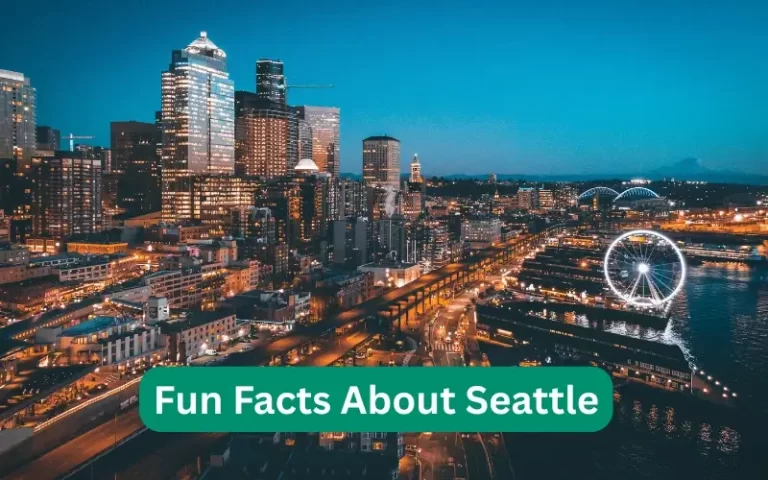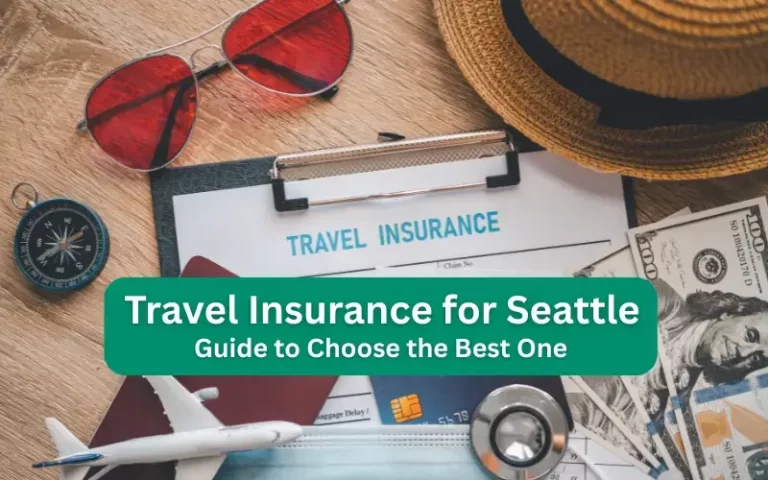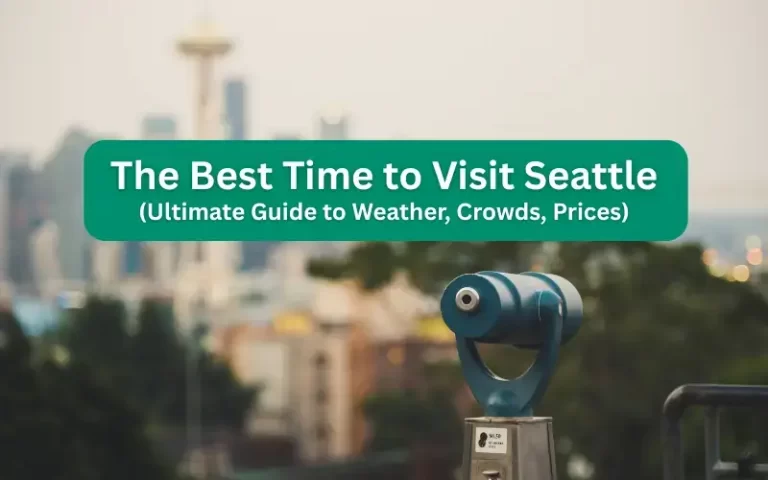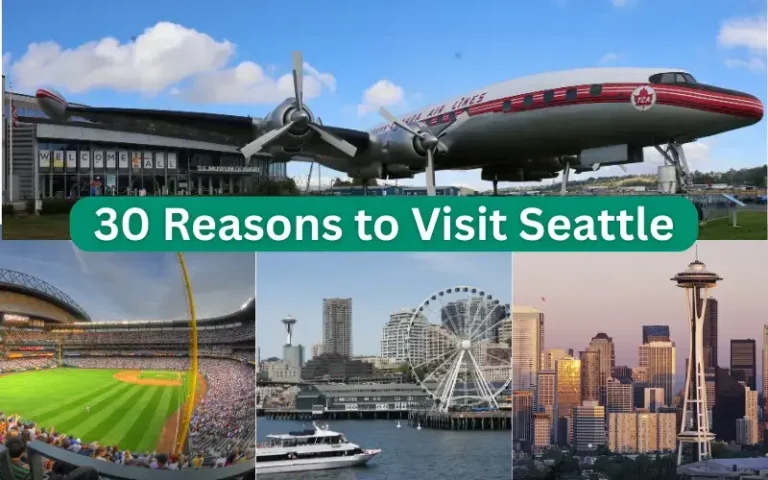Seattle is generally safe to visit right now in 2025, especially if you take standard travel precautions. Like any major city, it has areas with higher crime rates, but most tourists report feeling secure in popular neighborhoods and attractions.
Seattle welcomes many travelers every year, including those traveling alone. Many ask; Is Seattle safe to visit for tourists right now, especially at night. The reality is that Seattle’s safety varies by location and time of day.
This guide will help you understand the safety of Seattle for solo travelers, nighttime visitors, and other tourist types. It also includes safety notes for each major neighborhood, along with information about common scams and safety tips for visitors. You can jump to your favorite part, using this table:
Visiting a big city like Seattle can be exciting but also a bit worrying. News about homelessness, property crime, and some transit incidents can make it seem scary.
But the city continues to invest in public safety, with visible police presence and community programs aimed at crime reduction. So, the real story is more balanced in 2025. The best time to visit Seattle varies with weather patterns, festival calendars, and typical crowd levels.
If you stay aware of your surroundings like you would in any big city, you can enjoy it without problems. Let me walk you through Seattle’s safety scores, first.
Is Seattle Safe to Visit for Tourists Right Now in 2025?
Yes, Seattle is safe to visit as a tourist right now in 2025. Popular spots like Pike Place Market, Seattle Center, the Waterfront, and the Stadium District on game days are busy and well-watched, especially during the day and early evening.
You will notice more uniformed staff on transit and at major hubs compared to a few years ago. This visible presence, along with a 23% overall drop in crime compared to last year, makes most trips feel safe if you stick to main streets and use common sense.
Getting around Seattle is also safer and better organized. King County allocated over 26 million dollars in 2025 for added transit safety. The Link light rail and Seattle Center Monorail have strengthened security and keep riders informed about safety.
It’s best to stay on busy streets and pick hotels or rentals with good reviews. For convenience and safety, look for centrally located options like The Maxwell Hotel, near Seattle Center.
Services like Yellow Cab are licensed and regulated, and app-based rideshares are popular. Amtrak’s King Street Station in Pioneer Square is busy during the day, staffed, and secured by Amtrak Police. All these measures help ensure that tourists feel safe traveling around the city.
Is Seattle Safe to Walk Around at Night?
It is generally safe to walk around at night in Seattle. But the vibe changes after business hours, and visitors feel most comfortable on well-lit streets near restaurants, theaters, or arenas, or by taking a short rideshare between stops.
A few blocks in downtown near bus routes can feel uncomfortable late at night. This is because of open drug use and some aggressive panhandling. The city is working to make these areas better by improving lighting and increasing patrols. Still, these spots can seem edgy after dark.
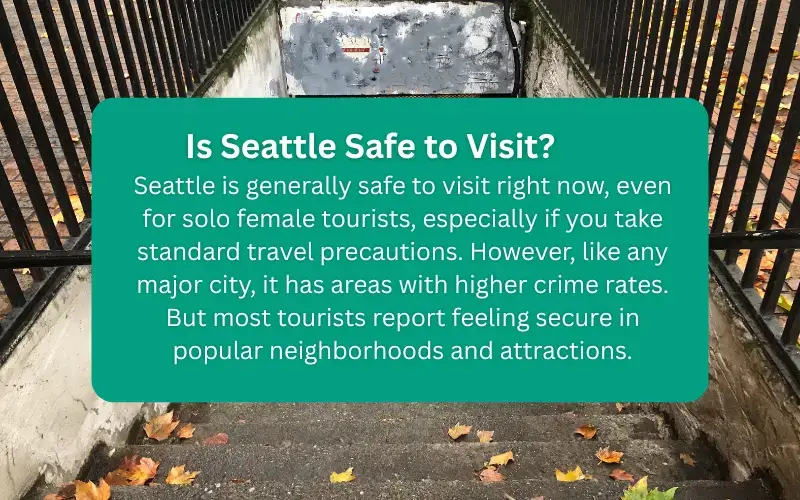
Stay on the main drags, avoid isolated alleys, and if a block feels off, cross the street or change course. If you want quick, practical steps, skip down to the tips section at the end.
What About Solo Travel in Seattle, Especially for Women Travelers?
Seattle is a safe city for solo travelers, including women, when you use everyday awareness and set boundaries after dark. It’s best to stay on busy streets and pick hotels or rentals with good reviews in the areas most visitors choose to stay in Seattle. For longer trips at night, use rideshares or public transport.
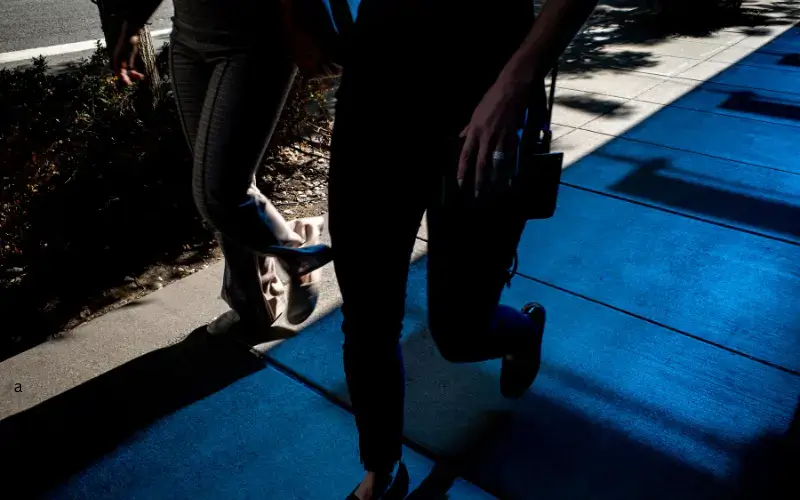
Is Seattle Good and Safe for Families and Kids?
Yes, Seattle is good and safe for families and kids. It is delightfully easy to fill a day with kid-friendly stops without long transfers.
In 2025, Seattle ranked eighth in the nation for overall park access and quality. Almost all residents, 99%, live within a ten-minute walk of a park. This shows that safe and playable public spaces are spread throughout the city. Seattle offers over 6,600 acres of parkland, providing plenty of green space for families.
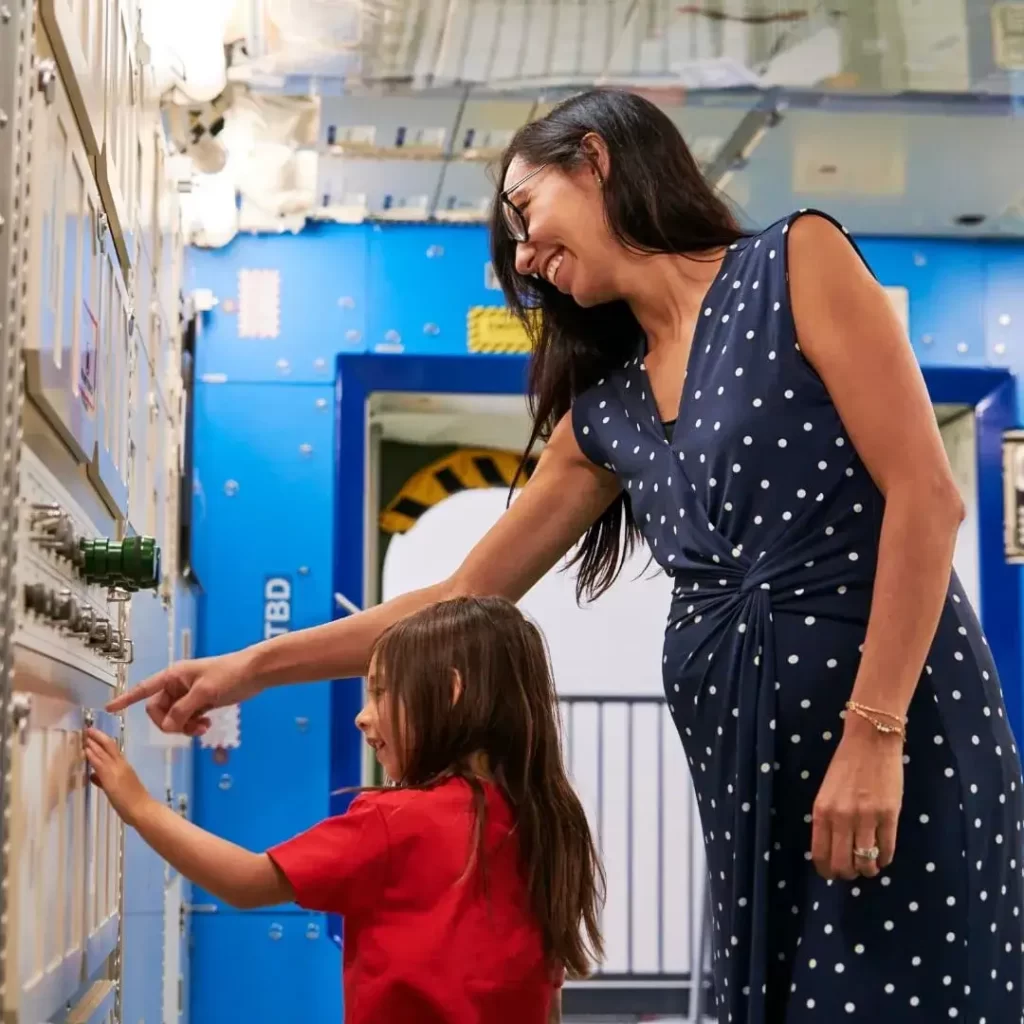
Many family-friendly activities in Seattle are easy to enjoy. Itineraries often include places like the Seattle Aquarium, the Pacific Science Center, and the new waterfront park.
These spots make family trips feel relaxing and straightforward. To stretch your budget, consider the Seattle CityPASS, which saves up to 49% on admission to five top attractions in Seattle. These include the Space Needle (two visits in 24 hours) and the Seattle Aquarium.
Is Seattle LGBTQ friendly?
Yes, Seattle is an LGBTQ-friendly city due to decades of community organizing, a visible queer nightlife scene in Capitol Hill, and strong legal protections.
On the policy side, Seattle earns a perfect one-hundred score on the Human Rights Campaign’s Municipal Equality Index, which evaluates cities across non-discrimination, policing, youth services, and more.
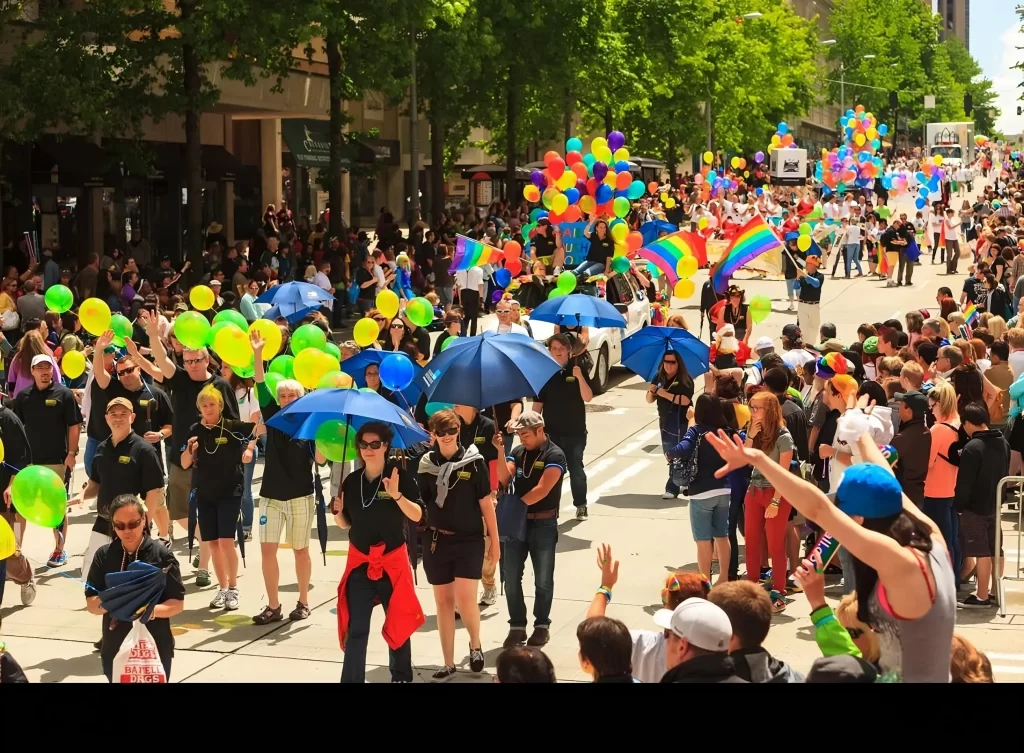
For visitors, that translates to easy everyday comfort and a full calendar of events from Pride Month through the fall. As in any big nightlife district, keep your wits about you late at night, but the baseline social climate is welcoming.
Is Seattle Good for Trans People?
Yes, Seattle is safe and good for trans people. The city’s laws protect gender identity and expression in places like housing, jobs, and public spaces. Washington has a hate-crime law that makes bias-related crimes more serious. Many trans tourists feel safe in popular areas like Capitol Hill and the University District. It’s still smart to be careful at night!
Is the Emerald City Good for Black People or POC?
Seattle focuses on fairness in all city departments. Its Race and Social Justice Initiative is one of the oldest in the U.S. You can witness this in diverse programs at museums and community centers in areas like the Central District and Beacon Hill.
The city also enforces rules against hate. While some areas may feel unsafe at night and parts of downtown are still recovering, Seattle openly welcomes everyone.
Is Seattle Safe for Muslims?
Yes, Seattle is pretty much safe for Muslims, Jews, and people from other religions. There are many mosques around the city. And you can find a lot of halal food spots in Seattle. Washington law treats anti-Muslim hate crimes as serious felonies. If you face harassment, report it.
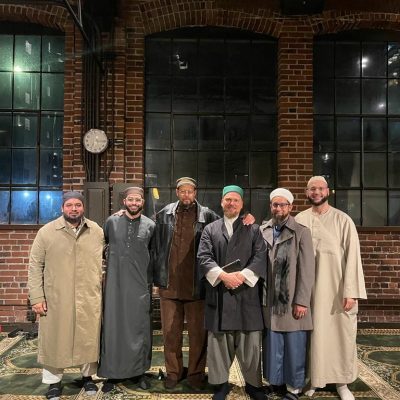
Is Seattle Dangerous Right Now?
I don’t think Seattle is dangerous right now in 2025. The citywide crime has been lower than last year. The city faces property crime and visible drug use in small areas. A few late-night transit incidents occurred, so many choose rideshares after midnight.
Seattle Safety Rating
Seattle’s safety score is improving. Crime across the city has dropped since last year. In early 2025, crime incidents were fewer than in the same months of 2024. The police report a 15% decrease in overall crime through August 2025.
Homicides are down sharply too, with 27 reported so far versus over 60 last year. Violent crimes like robbery and assault have decreased, and vehicle theft has declined about 32% this year.
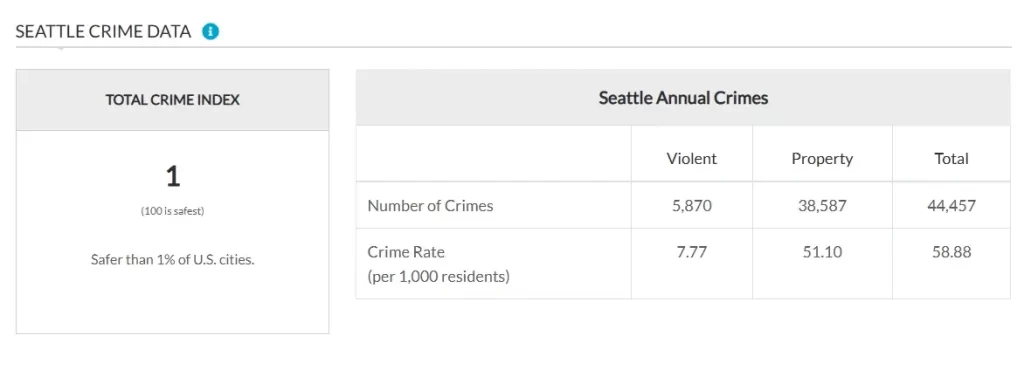
Most crimes in Seattle are property-related, including car prowls and burglaries. These happen more than violent crimes. Visitors often notice minor damage like broken car windows in parking lots, but violent crime is less common.
Seattle ranks fourth in total crime among the 30 largest U.S. cities, with property crime nearly 185% above the national average. However, violent crime ranks lower compared to other cities and is generally falling.
Safety varies by neighborhood. Some areas like Magnolia, Queen Anne, and Ballard are safer for visitors. Other neighborhoods require more caution, especially at night. Travelers are advised to enjoy the city but remain watchful of their belongings. Common scams are also present in tourist spots, so following safety tips is important.
Overall, Seattle is becoming safer, with promising trends in 2025 showing major drops in violent and property crimes. Visitors should stay informed about local safety and neighborhood risks to make the most of their trip.
When Comparing Seattle’s Safety to Other US Cities
Seattle’s safety is complicated. Total crime rates suggest it is less safe than some big US cities. However, its violent crime rate is lower than many others. Most of Seattle’s crime comes from property crimes, which are high. Tourist-related and violent crimes are fewer compared to major cities in the US.
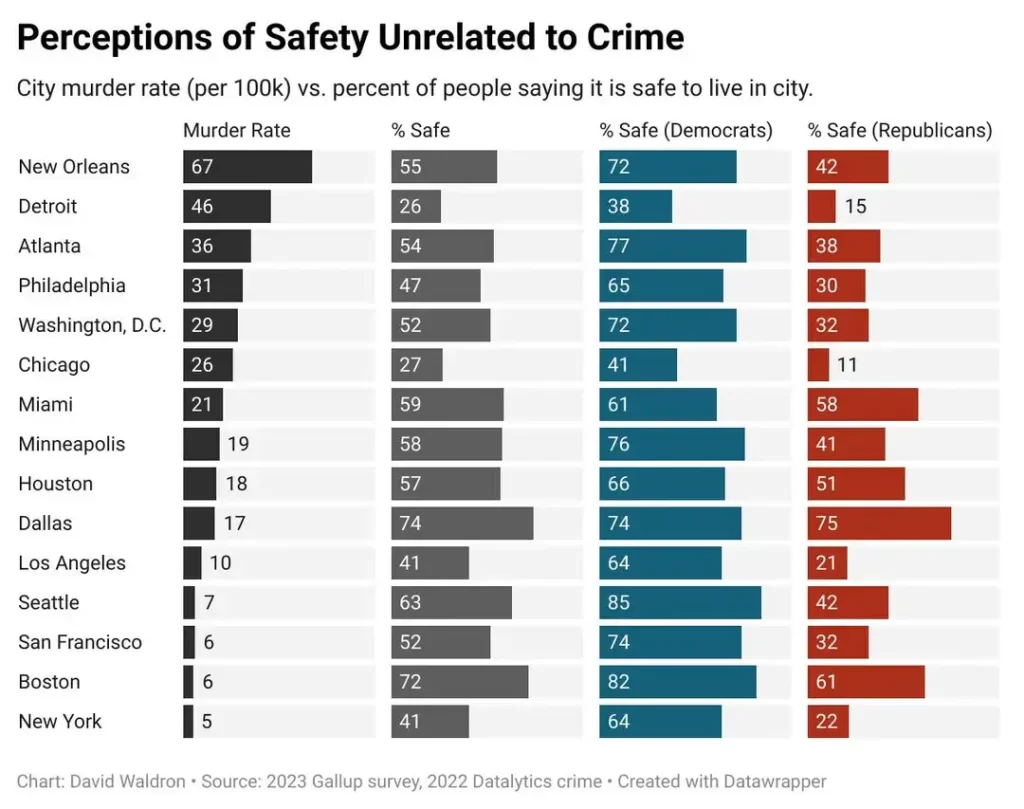
Is Seattle Safer than New York?
New York is generally considered safer than Seattle regarding violent crime rates. However, the answer depends on what you look at.
New York is very large and has many transit options. It recently saw a record low in shootings. Seattle is smaller and has more cars. It deals more with car theft and break-ins than stranger robberies. Visitors staying in main neighborhoods can easily get around in both cities.
Is Seattle Safer than Portland?
Portland saw less violent crime in 2024, mainly due to fewer homicides. Both Portland and Seattle are bringing more activity to their downtown areas with new programs. When picking between them, your safety depends more on the neighborhood and how you act at night than on overall city crime rates.
How Does the Safety of Spokane, Tacoma, and Bellevue Compare to Seattle?
Spokane and Tacoma have more violent and property crimes than Bellevue or Seattle. Bellevue shows the lowest crime rates among large cities due to its suburban design and newer homes.
During the day, visitors find Seattle and Bellevue quite alike. Seattle has a busier nightlife. Tacoma and Spokane require more caution at night, especially near their centers.
Seattle’s Safety by Neighborhoods and Areas
Visitors will notice that tourist spots stay active during the day and early evening. Commercial streets become quiet and less inviting after work hours. If you’d rather see the city safely, the Seattle City Highlights tour offers a guided overview of major landmarks.
Some bus corridors may feel rough late at night. For peace of mind, consider exploring Seattle’s safest neighborhoods, such as Ballard or Queen Anne. And choose bright streets, follow crowds, and avoid blocks that seem off.
Downtown Seattle
Downtown Seattle is a safe neighborhood. And the tourist areas like Pike Place Market and the waterfront are considered safe, especially during the day. Consider booking the city’s private one-day private tour with Pike Place Market to enjoy sightseeing and local stories with peace. Late at night, the energy thins around office towers, but a few bus hubs feel edgy.

Belltown Seattle
The dining and bar scene in Belltown Seattle is popular and busy through late evening. Most visitors feel fine walking block-to-block for food, music, and the Sculpture Park.
After bars close the tone can shift on a few side streets; rideshare back to your hotel is better. This neighborhood is lively and in the heart of the city. However, it has more crime, especially related to drugs and property theft.
Capitol Hill Seattle
Capitol Hill is a vibrant neighborhood with different safety levels. However, it’s safe for tourists that want café hopping, bookstores, and nightlife. Be street-smart after midnight around the edges of Cal Anderson Park and the steeper side streets.
Pioneer Square Seattle
The historic district is great by day for galleries and stadium pregame energy. After games it stays lively, but on non-event weeknights the blocks can go quiet. So, stick to main avenues or take the streetcar or a short ride. The perception of safety decreases at night.
Queen Anne Seattle
Yes, Queen Anne is considered pretty much safe for tourists and locals alike due to low crimes. Upper Queen Anne feels residential and calm with gorgeous viewpoints. Lower Queen Anne around Seattle Center is busy with the Space Needle, Monorail, and arenas. It is a smart base for families who want a quieter night’s sleep near major sights.
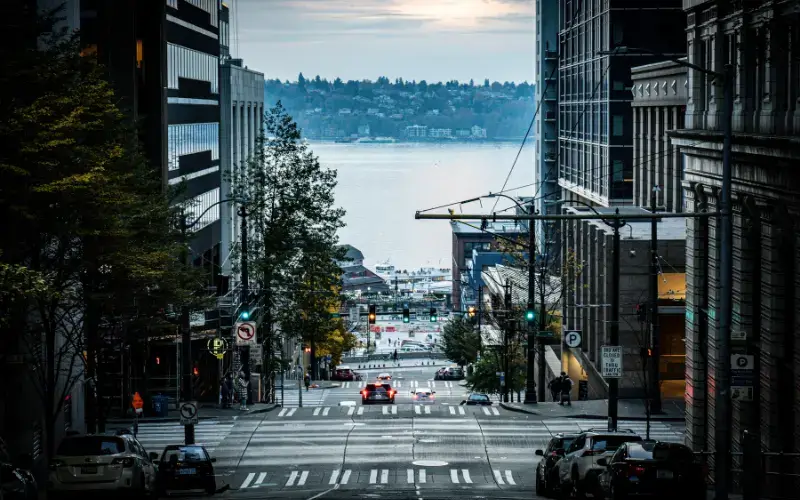
West Seattle
Yes, West Seattle is safe with a violent crime rate below the national average. Alki Beach, the Junction, and the peninsula’s long waterfront paths are favorites for relaxed daytime roaming. Nights are more neighborhood-quiet than big-city loud, which many visitors love.
Seattle’s safest neighborhoods offer a mix of vibrant and calm environments, each with distinct characteristics.
Aurora Ave Seattle
Aurora Ave is a busy highway area with motels and shops. It is okay for quick drives to places like Green Lake or Woodland Park Zoo. However, avoid walking here at night.
Ballard Seattle
Ballard is safe around breweries, the Locks, and the Sunday market. The main streets stay lively later in the evening. At night, stick to well-lit, busy roads, not dark residential blocks.
Northgate Seattle
Northgate has improved with new transit and development near Kraken Community Iceplex. Car break-ins can happen, so hide valuables when parking.
Seattle Center
Seattle Center is very safe and well-staffed. Visitors enjoy landmarks like the Space Needle and museums. You can visit both easily with the Seattle CityPASS, which includes entry to five attractions and offers up to 49% off regular prices.
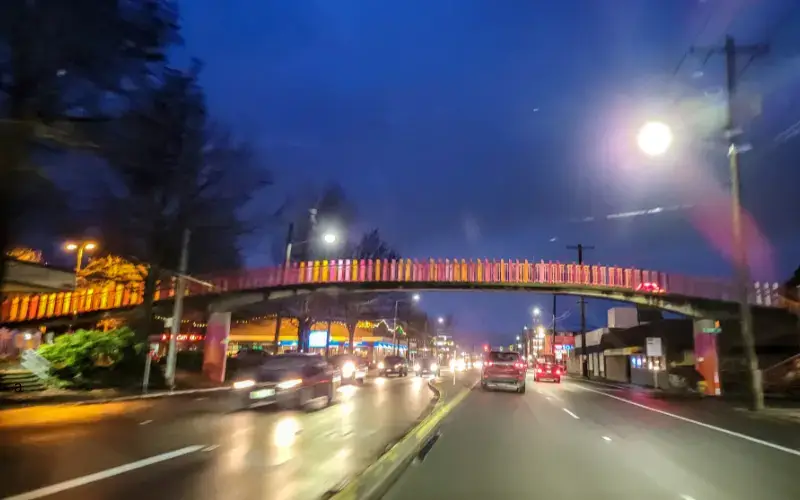
Green Lake Seattle
Green Lake’s loop path is popular day and night. The area is peaceful after dark, but it is best to visit earlier. Always lock your car.
University District Seattle
The U District is safe and active during the day because of UW and transit. At night, expect student nightlife on main streets and quiet residential areas nearby.
Lake Union Seattle
South Lake Union is a safe tech hub with paths and lunch spots. North Lake Union is more industrial and quiet. Use ride shares late at night.
Seattle Waterfront
The Waterfront is generally safe during the day, with dedicated security patrols. It stays busy with tourists and families during the day. After business hours, it becomes quiet. Plan to use ride shares after dark.
Roosevelt Seattle
Roosevelt is generally a safe area in Seattle. It’s a calm, family-friendly neighborhood with light rail and cafés. It is close to Green Lake and feels like a good residential area.
Beacon Hill Seattle
Yes, Beacon Hill is a safe neighborhood in Seattle, with a lower crime rate than the city average. It’s mostly quiet with nice views. The light rail station keeps the daytime lively. At night, walk along main roads for safety.
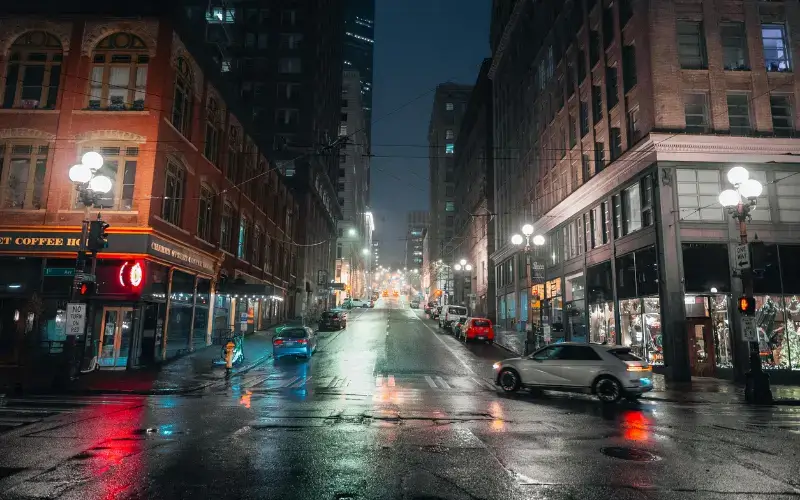
Georgetown Seattle
Comparatively, Georgetown Seattle is not a very safe neighborhood. Some report high rates of property and violent crime. And residents keep showing concerns over safety and security. But for a tourist, you should still visit Georgetown in the day for it is an artsy, industrial area with galleries and bars.
Cherry Hill Seattle
Cherry Hill in Seattle is a safe and diverse neighborhood with low crime rates. It’s perfect for families and solo travelers, with low crime rates. It has hospitals and clinics and seems orderly during the day. Nights are quiet and residential.
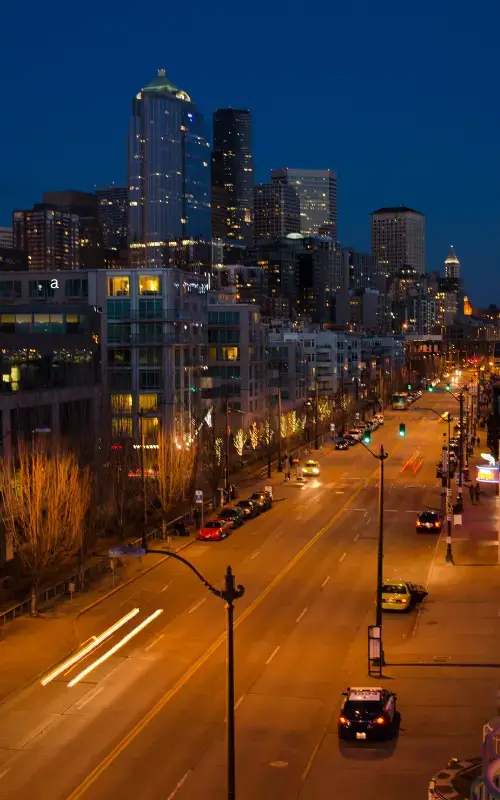
Yesler Terrace Seattle
Yesler Terrace in Seattle does not look safe because the residents keep reporting mixed perception about the safety. It is a rebuilt, mixed-income area. Usually, visitors pass through it on their way downtown; and it’s perfectly okay. At night, stay on main streets for safety.
Interbay Seattle
Interbay Seattle is safe, but safety depends on the location within the neighborhood. You as a tourist should still visit it for its rail yards and big-box stores. Driving or transit is best to get through. Walking during the day is fine on wide sidewalks.
Japantown Seattle
Japantown is lively in the day with food and culture inside the Chinatown-International District. At night, stay on main streets or use public transit and rideshares.
Judkins Park Seattle
Judkins Park is peaceful with a popular park and new transit nearby. It is quiet at night; stick to main roads.
Olympic Hills Seattle
Olympic Hills is green and residential in north Seattle. It is calm with small commercial areas. Visitors usually come for parks.
West Queen Seattle
West Queen Anne has safe, steep residential streets and great views. It has a peaceful vibe without much nightlife.
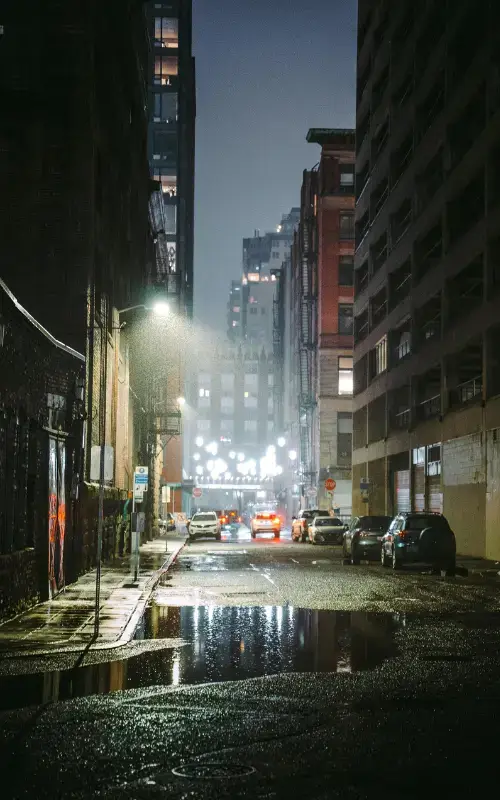
Youngstown Seattle
Youngstown, near the Duwamish River in West Seattle, hosts cultural centers and parks. It is good by day but best to drive at night. Seattle’s safest neighborhoods provide options for families, culture lovers, and those seeking quiet or lively areas.
Is Seattle Safe from Natural Disasters?
No, Seattle is not safe from natural disasters. The city sits in earthquake country with hazards from both the Cascadia Subduction Zone and the shallow Seattle Fault.

The Office of Emergency Management maps risks ranging from earthquakes and landslides to coastal flooding and tsunamis. That is why you see “Drop, Cover, Hold On” messaging in public buildings and well-signed evacuation routes along the waterfront.
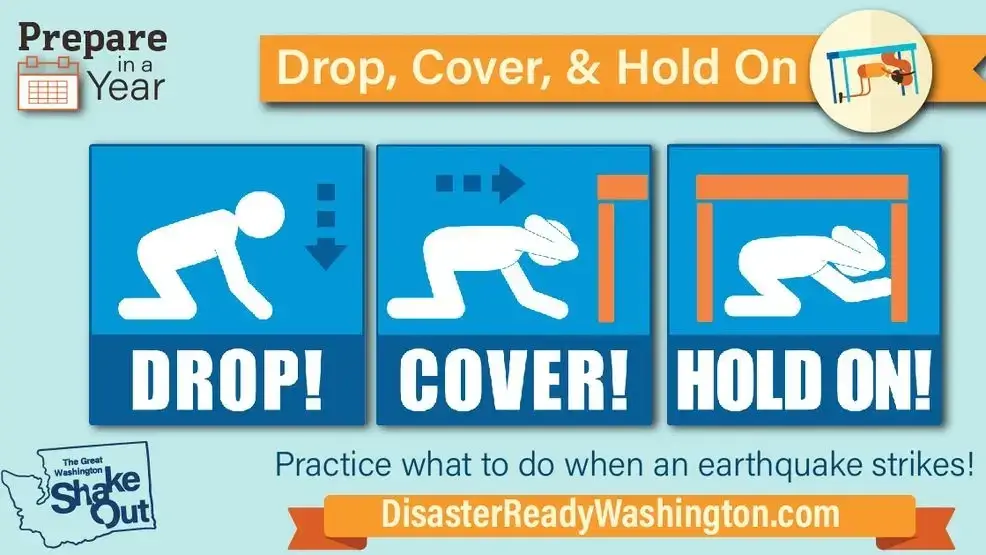
Tsunamis in Seattle can occur, especially from a quake on the Seattle Fault, with waves reaching Elliott Bay in minutes. Evacuation routes uphill are clearly marked to ensure safety.
Climate change in Seattle is gradually altering weather patterns, increasing the risk of heatwaves and impacting local ecosystems.
The Big One in Seattle refers to a major Cascadia Subduction Zone earthquake, which could cause widespread devastation and trigger tsunamis and landslides.
Wildfires in Seattle mainly affect air quality during summer, causing smoke that can linger for several days but rarely directly threaten the city.
Volcanoes in Seattle pose some risk, particularly from Mount Rainier, which could produce lahars threatening river valley communities south and southeast of the city.
Hurricanes in Seattle are extremely unlikely due to the region’s geographic and climatic conditions.
Is Seattle Tap Water Safe to Drink?
Yes, the tap water in Seattle is safe to drink. The water always meets or beats federal and state quality rules. It is often cleaner than the national average for important contaminants.
The water comes from the Tolt River Watershed. It is treated and checked to make sure it is safe to drink. However, using a filter can make it taste better and remove harmful stuff from old pipes.
Most Common Scams in Seattle
The most common scams in Seattle are fake calls or visits from people pretending to be officials like police or utility workers. There are also job scams where fake offers make you pay fees. Another scam is when strangers offer home repairs that are not needed and cost too much.
What to Do: Most schemes start with urgency and a demand for unusual payment. Pause, verify through an official channel, and report what you see.
Government Impersonation
Scammers pose as the IRS, courts, police, or utilities and threaten fines or arrest. They push you to act fast and keep you on the phone. Hang up and contact the agency using a number from its website.
Rental Scams
Fraudsters post gorgeous but fake listings and rush you to wire a deposit. They may copy photos from real for-sale homes. Insist on an in-person or verified virtual showing and pay only after a signed lease.
Job Offer Scams
Bogus “employers” ask for upfront fees or sensitive data during “onboarding.” They often use lookalike domains and generic titles. Verify the role on the company’s official careers page before sharing anything.
Roof Repair or Contractor Scams
Unsolicited crews knock after storms and “find” urgent damage. They demand cash, skip permits, and disappear after shoddy work. Get multiple bids, check licenses, and insist on a written contract.
Gift Card Payment Scams
Any caller who demands payment with gift cards is scamming you. They may ask for the numbers and PINs while you are still in the store. Keep the cards and receipts and report the attempt right away.
Toll Text Phishing for Good To Go
Texts claim you owe tolls and link to a fake payment page. The goal is your card number or login. Do not tap the link; go directly to the official toll site to check your account.
Tips for Visitors to Ensure Safety in Seattle
A few simple habits cover most of what matters in Seattle. Travel the busy paths, give yourself permission to pivot if a block looks uncomfortable, and treat your parked car as an empty shell. Here are a few more visitor safety tips:
- Lock the car and leave nothing visible, even for quick stops near trailheads or viewpoints
- Use rideshare or transit for late-night hops instead of long walks on quiet streets
- Stick to main, well-lit avenues and skip alley shortcuts after bars close
- Keep your bag closed and carry your phone with intention in crowded spots like Pike Place
- Set a meet-up plan and a last-ride home time if you are out with friends
- Use Link, the Monorail, or a taxi for quick, direct jumps between attractions
- Trust your instincts and change course immediately if a situation feels off
- Save local emergency numbers and Metro’s rider safety page before you land
- Verify any “official” message about fines or tolls by going to the agency site yourself
- Build a weather-flexible day for the Seattle mountains for a quick hike or viewpoint drive
- Book hotels in Seattle Center, Downtown near the waterfront, or the University District for easy access to sights



